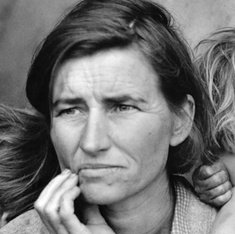Featured Quizzes
User Quizzes
Create Quiz
Data and Charts
Badges and Games
About JetPunk
JetPunk Shop
Dark Mode

Top 10 Poorest U.S. States by Median Income
Can you name the 10 poorest states in the United States based on median household income?
Rate:
Featured Quiz
Last updated: September 15, 2023
You have not attempted this quiz yet.
More quiz info >>
| First submitted | April 7, 2016 |
| Times taken | 92,202 |
| Average score | 80.0% |
| Rating | 4.87 |
2:00
Enter answer here
0
/ 10 guessed
Time Used
00:00
Best Time
00:00
The quiz is paused. You have remaining.
Scoring
You scored / = %
This beats or equals
% of test takers
also scored 100%
The average score is
Your high score is
Your fastest time is
Keep scrolling down for answers and more stats ...
|
|
New and Popular
Save Your Progress
Copyright H Brothers Inc, 2008–2024
Contact Us | Go To Top | View Mobile Site

One must be careful when making or implying statements like "X is better than Y" in regards to this subject, cause that tends to lead to the notion of inherent superiority, when, if such superiority exists (which is very relative), it's only temporary. One of many reasons why nationalism is a foolish notion.
https://www.realclearpolitics.com/articles/2010/09/09/misunderstanding_the_southern_realignment_107084.html
All that the article seems to point out was that the Democrats' "Solid South" didn't flip overnight, which is obvious, and I've never seen anyone assert anything to the contrary. Of course some people who had voted Democrat their whole lives were reluctant to switch parties. But the change in the patterns of the electoral map could hardly be more stark, sudden, or complete in its transformation.
https://www.270towin.com/historical-presidential-elections/
But that wasn't enough to lose the South to Democrats immediately, who after all had much better campaign and political infrastructure established there going back generations. So it's not true that the '64 Civil Rights Act and Nixon's Southern Strategy alone flipped the South, but it finished what already began decades earlier. And it was always about race.
Next you're going to deny that the Civil War was really about Slavery, right?
You're looking at studies that use income as an input to determine happiness, so yeah, it's going to be correlated heavily with income.
If you want to find out how happy someone is, you should simply ask them. It's impossible to infer someone's happiness level by looking at their income, obesity rate, or other metrics. There are plenty of happy poor people and tons of miserable rich ones.
Here's a quiz about the 10 Happiest States based on actual survey data from 1.3 million people.
My cousin lives in Bridgeport.
Granted, even by this metric Mississippi isn't that poor. It has roughly the same value as Portugal.
Think of all them execs
I was super surprised to see Kentucky and Arkansas on here instead of Michigan and Deleware, seriously
A salary of $60,000 per year or so isn't that bad if you're living in a rural part of Oklahoma or Arkansas. Relative to the cost of living, it's more than enough to get by without really "feeling poor".
I'm sure people in NY and California have much higher salaries on average, but the cost of living is so high that you would have to make far more than 60K in order to avoid feeling the effects of low income.
I think it would be interesting to see a quiz that ranks the poorest or richest states when adjusting for this metric.
51. Hawaii: $50,941
50. Louisiana: $60,104
49. West Virginia: $60,839
48. Mississippi: $61,301
47. Arkansas: $61,523
46. Maine: $61,816
45. Kentucky: $62,495
44. New York: $62,841
43. New Mexico: $63,471
42. Vermont: $64,006
Full list here.